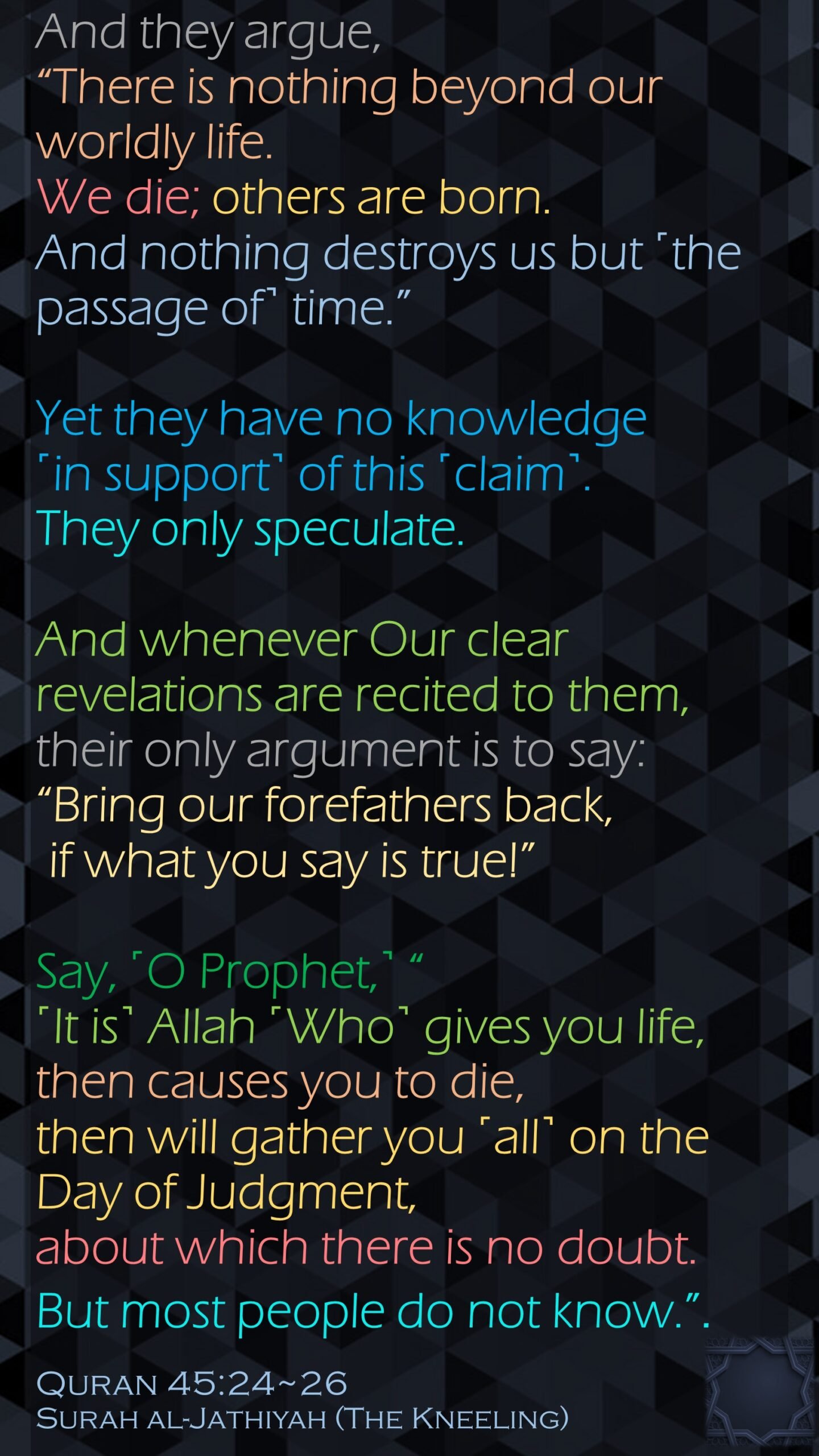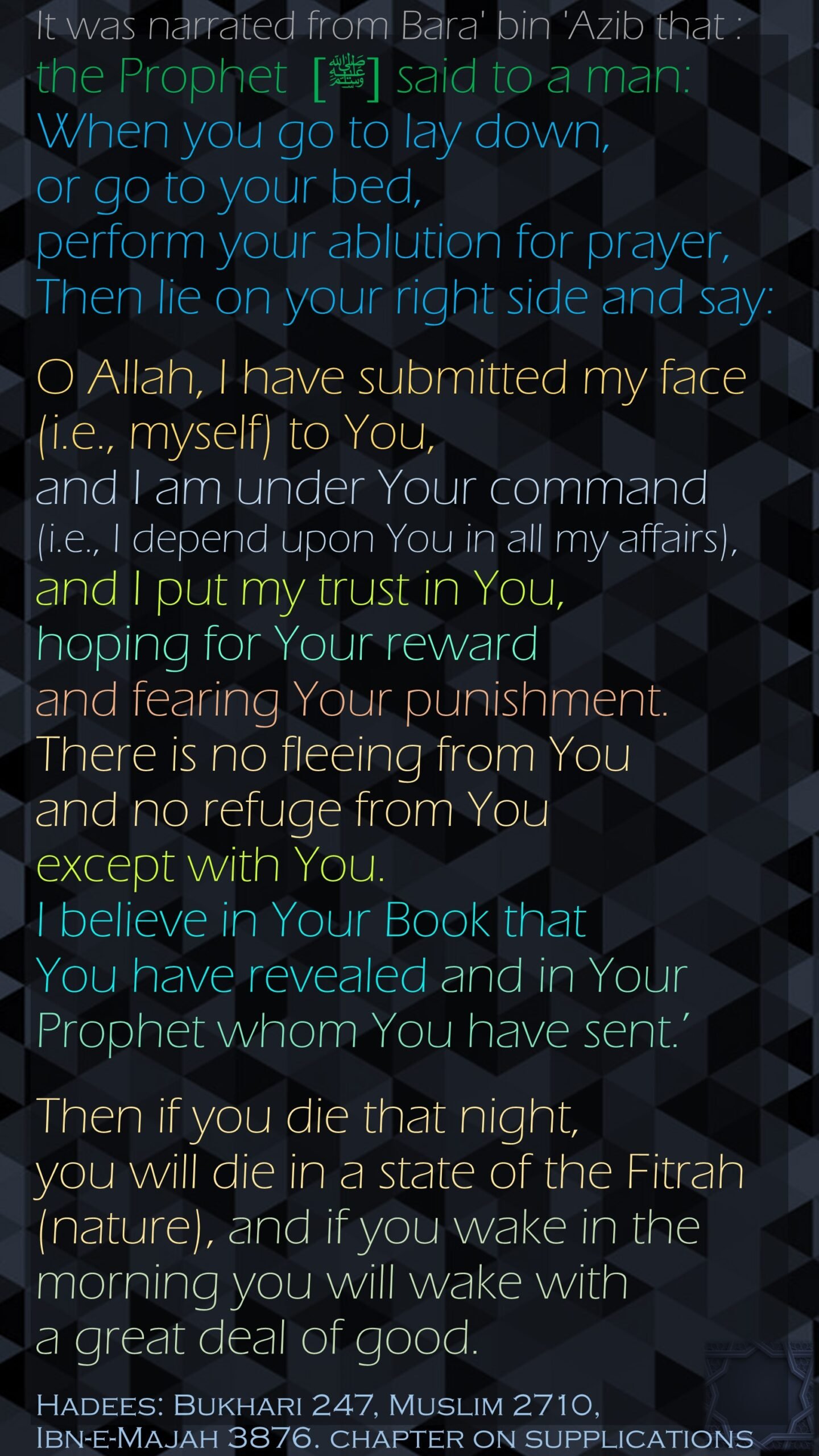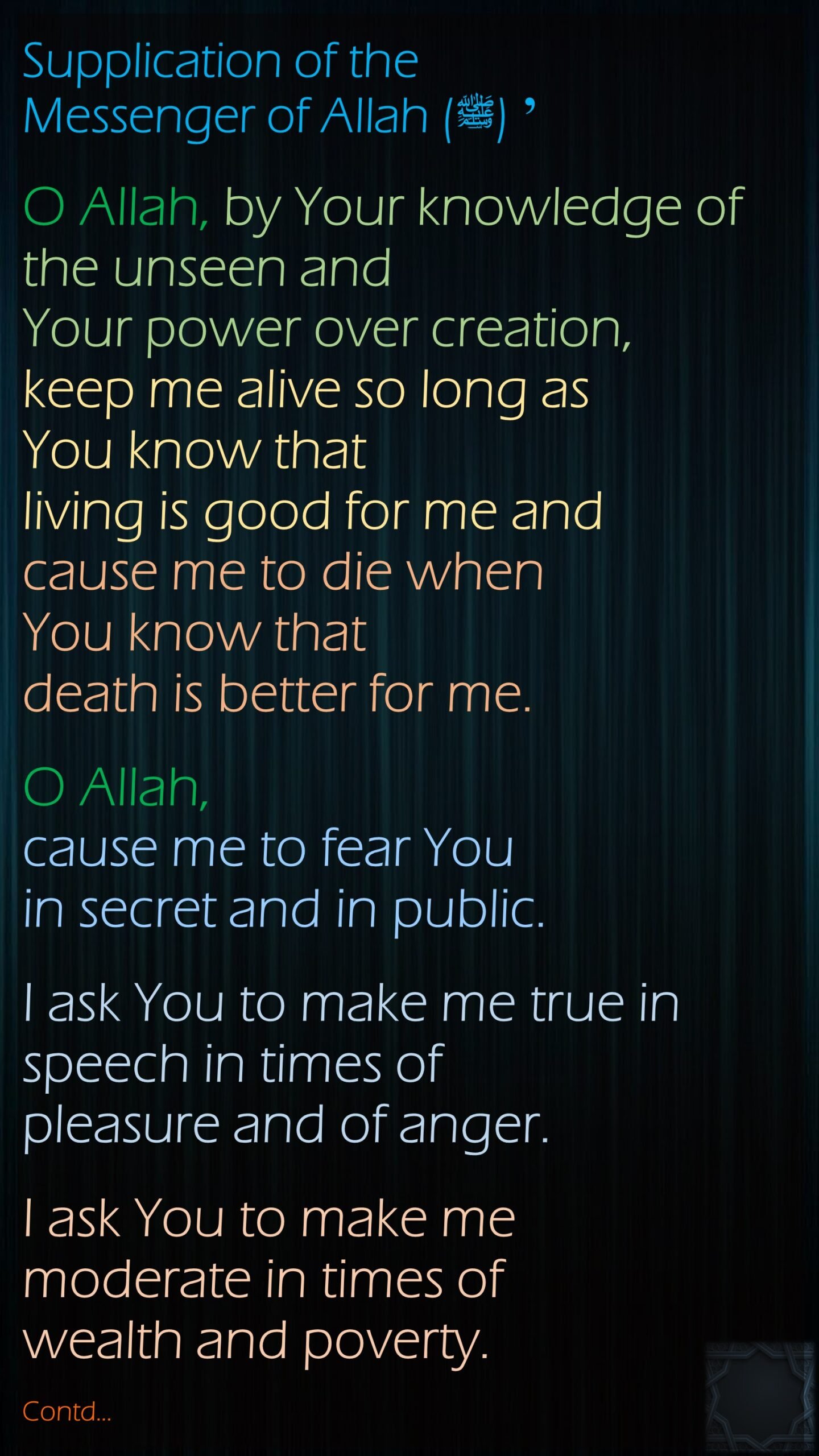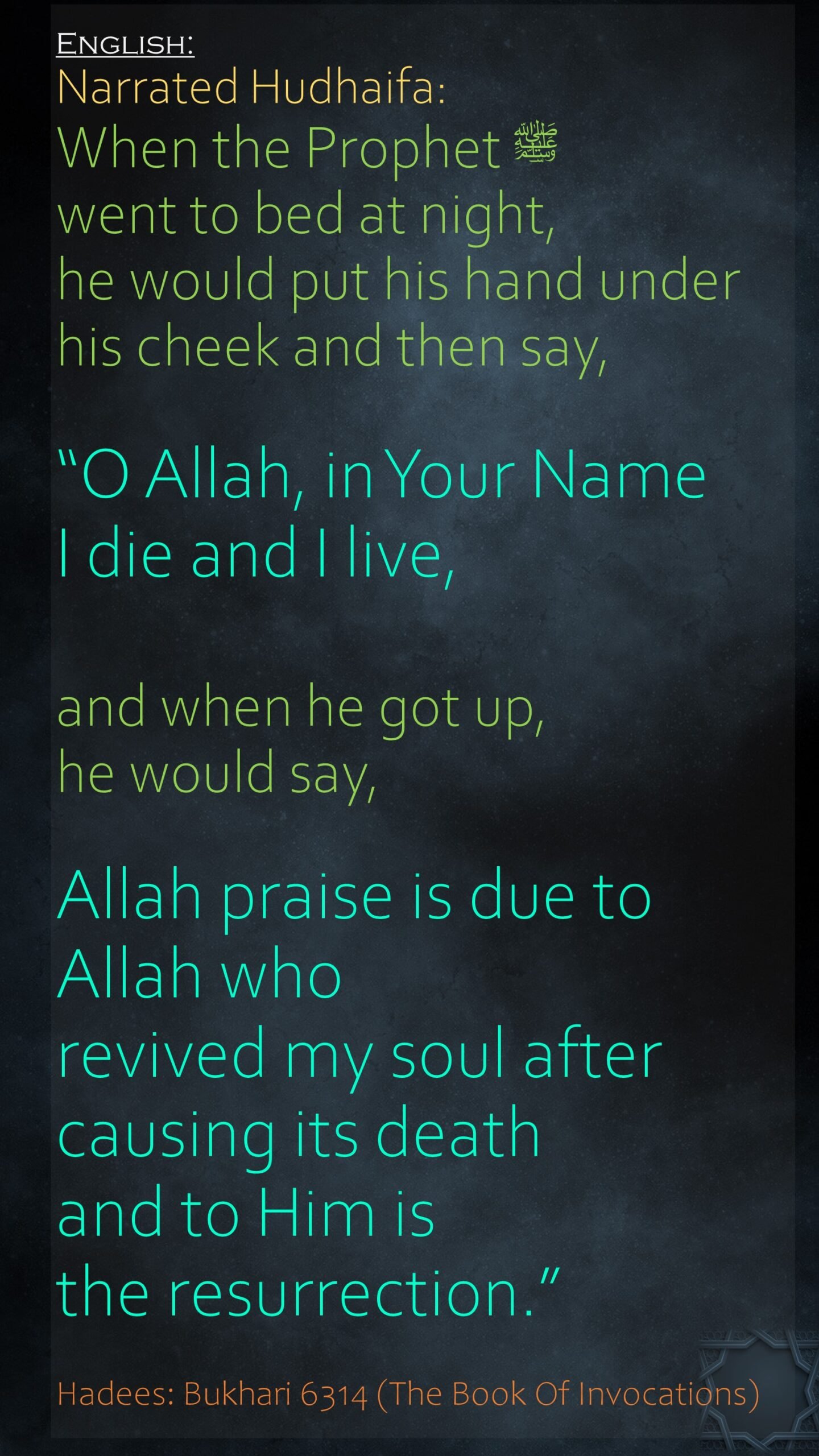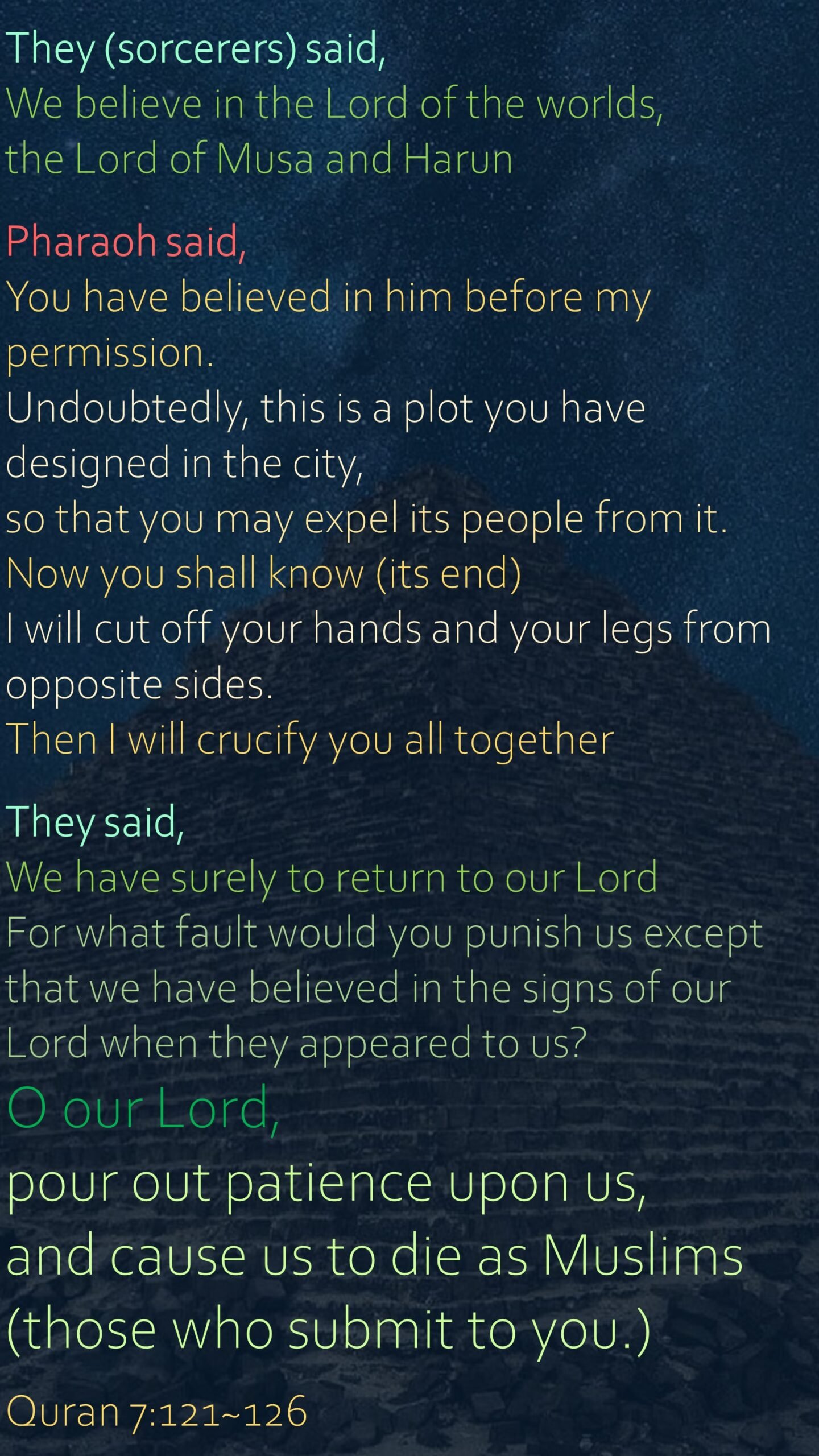Skip to Content
Tag Archives: die
- Home -
- Posts tagged "die"
( Page2 )
8
Aug, 2024
Islam, Quran
025, 75, 76, 77, 78, 79, 80, 81, 82, 83, Abraham, Allah, ancestor, ash-Shu`ara', ayat, create, daily, die, drink, enemies, enemy, father, Food, forgive, guide, heal, Ibrahim, inspirations, islam, islamic, Judgement Day, Life, Lord, Lord of the Worlds, Muhammad, people, provide, provision, quran, righteous, sick, Surah, worship
28
Jun, 2024
Islam, Quran
24, 25, 26, 45, al-Jathiyah, Allah, argument, ayat, clear, daily, day, die, doubt, false, forefather, inspirations, islam, islamic, judgement, kneel, kneeling, know, knowledge, Life, Muhammad, none, not, Prophet, quran, revelations, Surah, true, worldly
22
Jun, 2024
Hadees, Islam
ablution, Allah, ayat, bed, daily, die, Faith, Fitrah, flee, good, goodness, inspirations, islam, islamic, Muhammad, nature, night, Prophet, prophetic, punish, quran, refuge, reward, sleep, state, submit, sumit, supplication, Surah, trust, wake
19
Jun, 2024
Hadees, Islam
1376, 1631, 2880, 3651, 4223, Abi-Dawud, Allah, beneficial, book, child, daily, daughter, dead, decease, deceased, deed, deeds, die, end, except, human being, inspirations, islam, islamic, knowledge, knowledgr, Muhammad, Muslim, nisai, ongoing charity, person, pray, righteous, sadaqah jariyah, son, three, Tirmizi
22
Apr, 2024
Hadees, Islam
Allah, anger, ayat, beautify, better, book, daily, Death, decree, delight, deviation, die, fear, forgetfulness, good, guide, harm, inspirations, islam, islamic, joy, Life, life after death, live, longing, meet, moderate, Muhammad, pleasure, poverty, prayer, public, quran, secret, speech, supplication, sweetness, time, trial, true, wealth
7
Apr, 2024
Islam, Quran
Allah, ayat, daily, day, Death, die, everyone, evil, forever, good, human, humanity, imortal, imortality, inspirations, islam, islamic, judgement, Muhammad, quran, return, Soul, Surah, test, trial
10
Sep, 2023
Hadees, Islam
Allah, daily, Death, die, dua, inspirations, islam, islamic, Life, live, Muhammad, name, PBUH, praise, resurrection, SAWW, sleep, supplication, waking up
27
Mar, 2023
Islam, Quran
Allah, ayat, believe, city, crucify, cut, daily, die, expel, Firoun, Firun, Harun, inspirations, islam, islamic, legs, Magic, Moses, muslims, patience, Pharaoh, Pharoah, plot, quran, return, Sorcerer, Surah
25
Mar, 2023
Islam, Quran
190, 191, 192, 193, 194, Allah, alone, alternation, ayat, belief, creation, daily, day, die, disgrace, earth, fail, fire, forgive, Glory, grant, heavens, helper, inspirations, islam, islamic, judgement, lying, never, night, no, pray, proclaim, promise, protect, purpose, quran, reflect, remember, reson, shame, signs, sitting, standing, Surah, torment, true, virtuous, wrongdoer
16
Nov, 2022
Islam, Quran
Allah, ayat, believers, chapter 3, daily, deserve, die, full, Him, inspirations, islam, islamic, mindful, quran, state, submission, Surah, SWT, Verse 102


